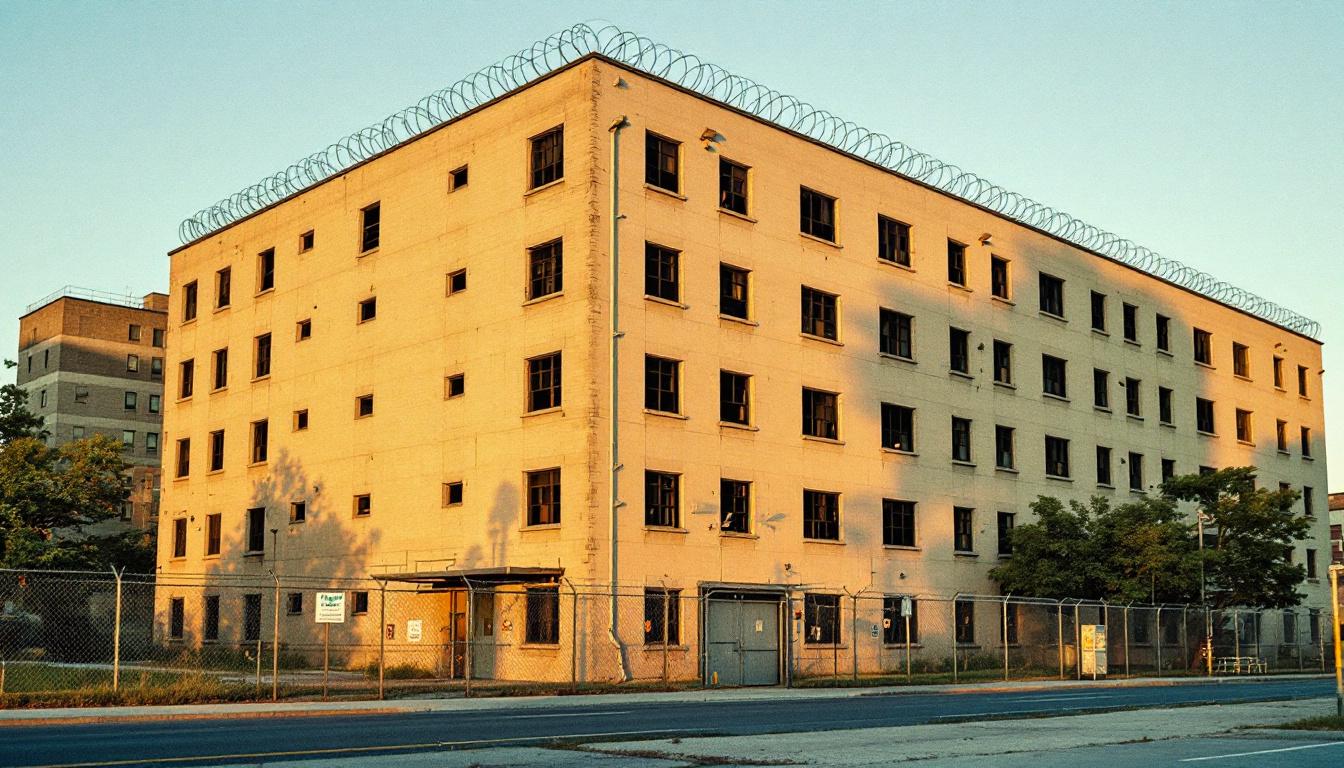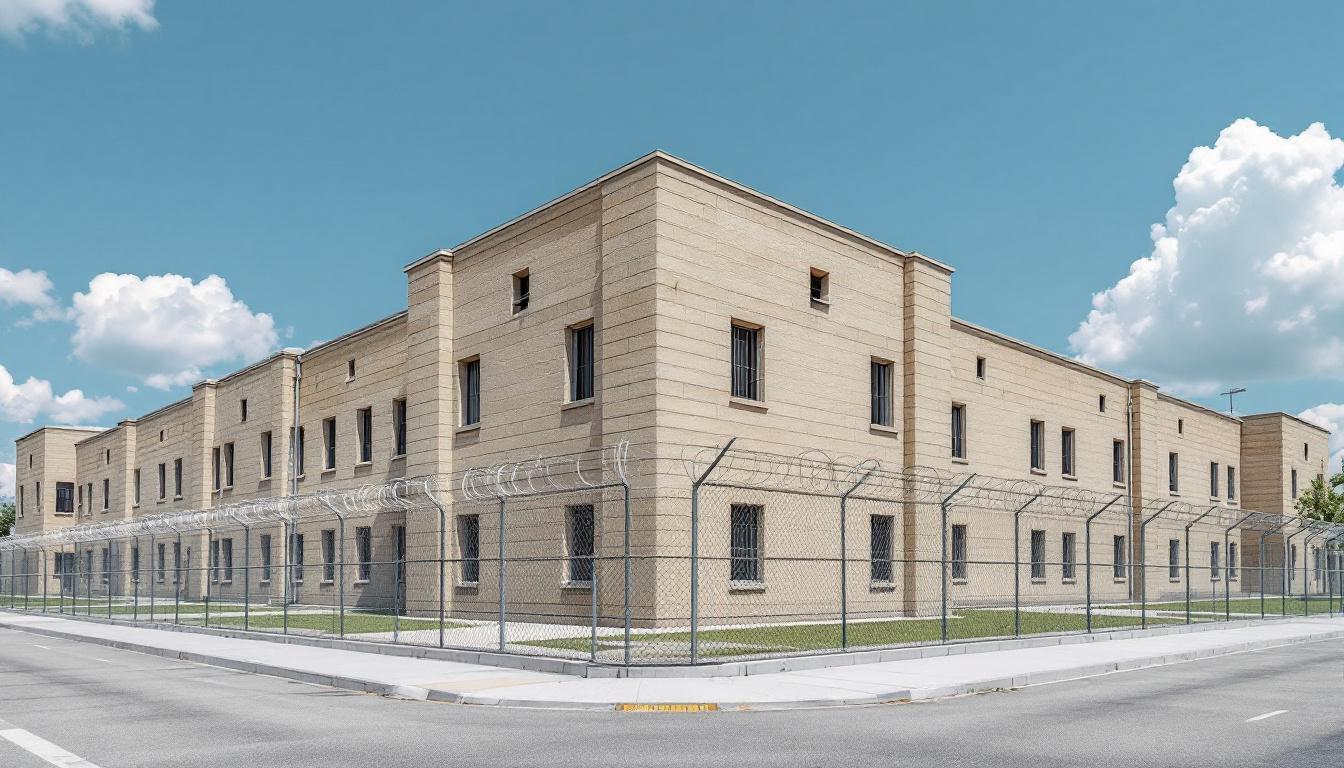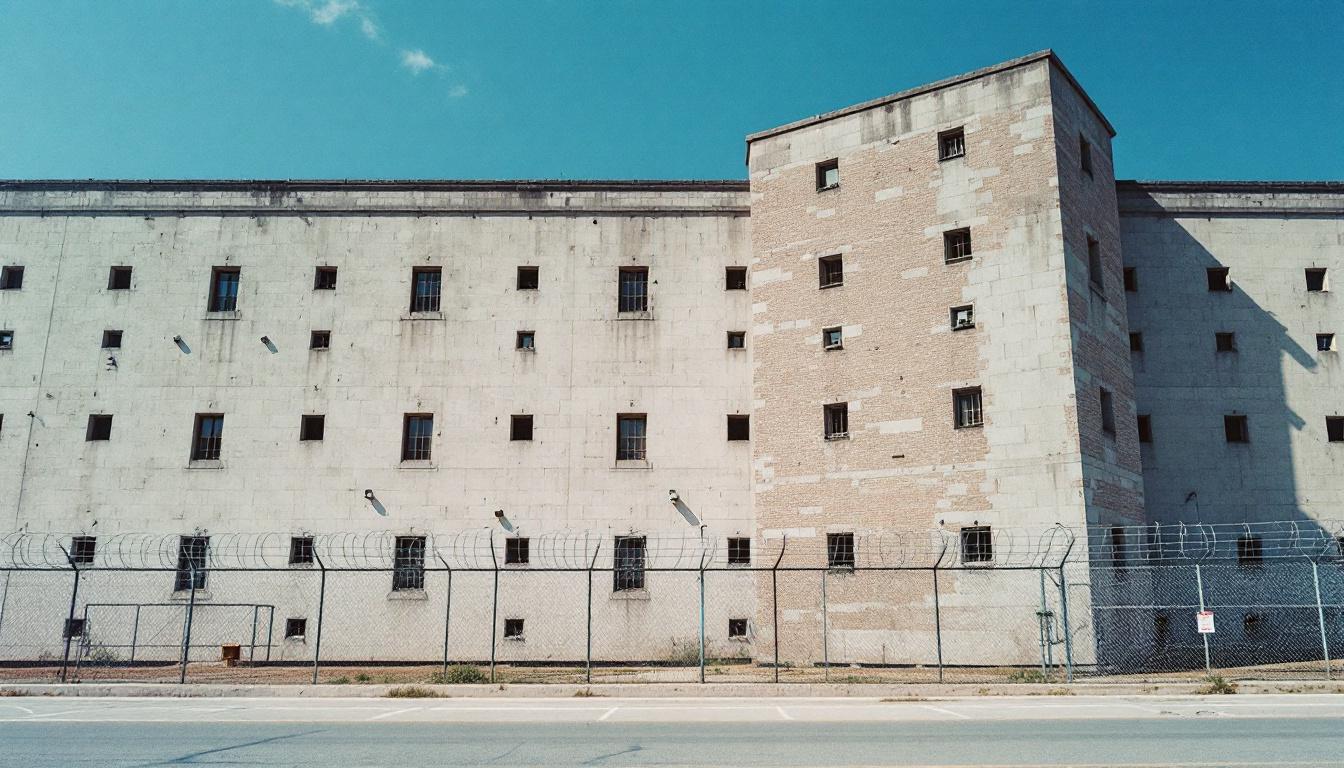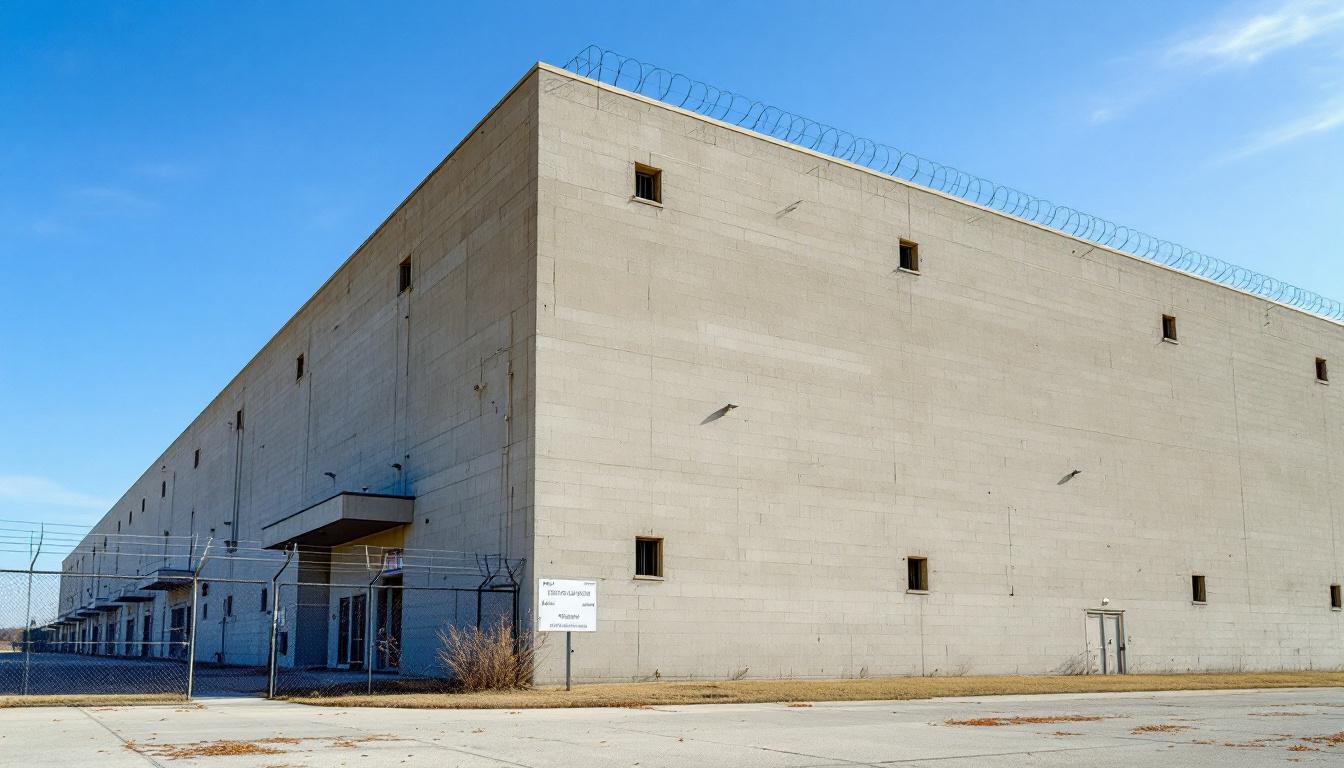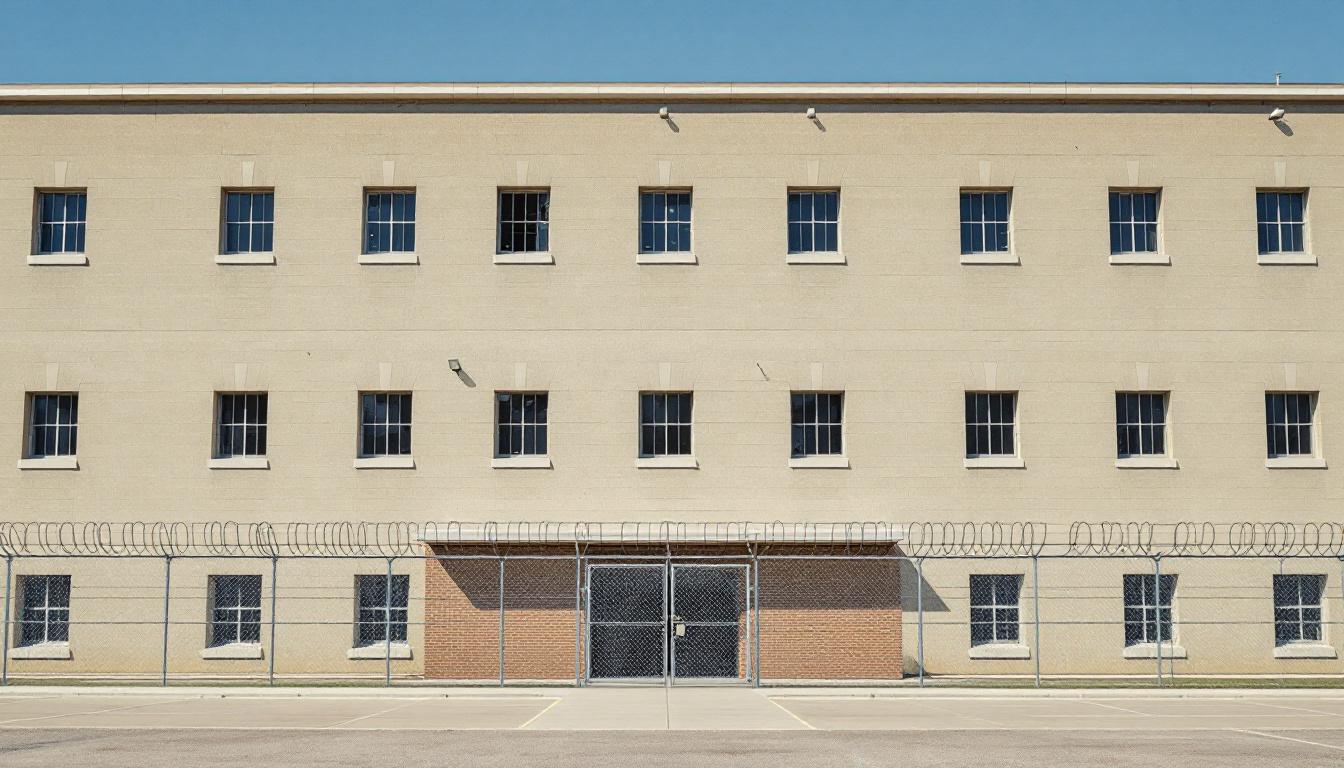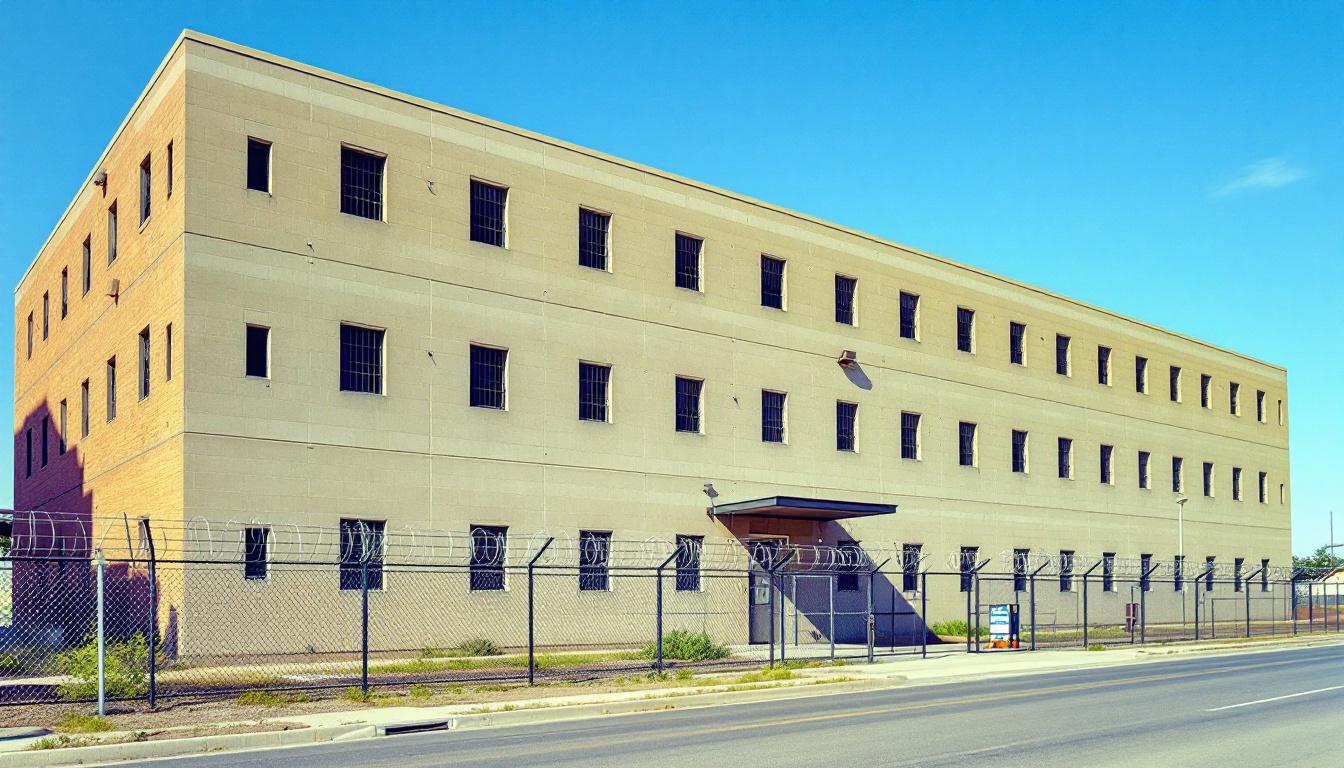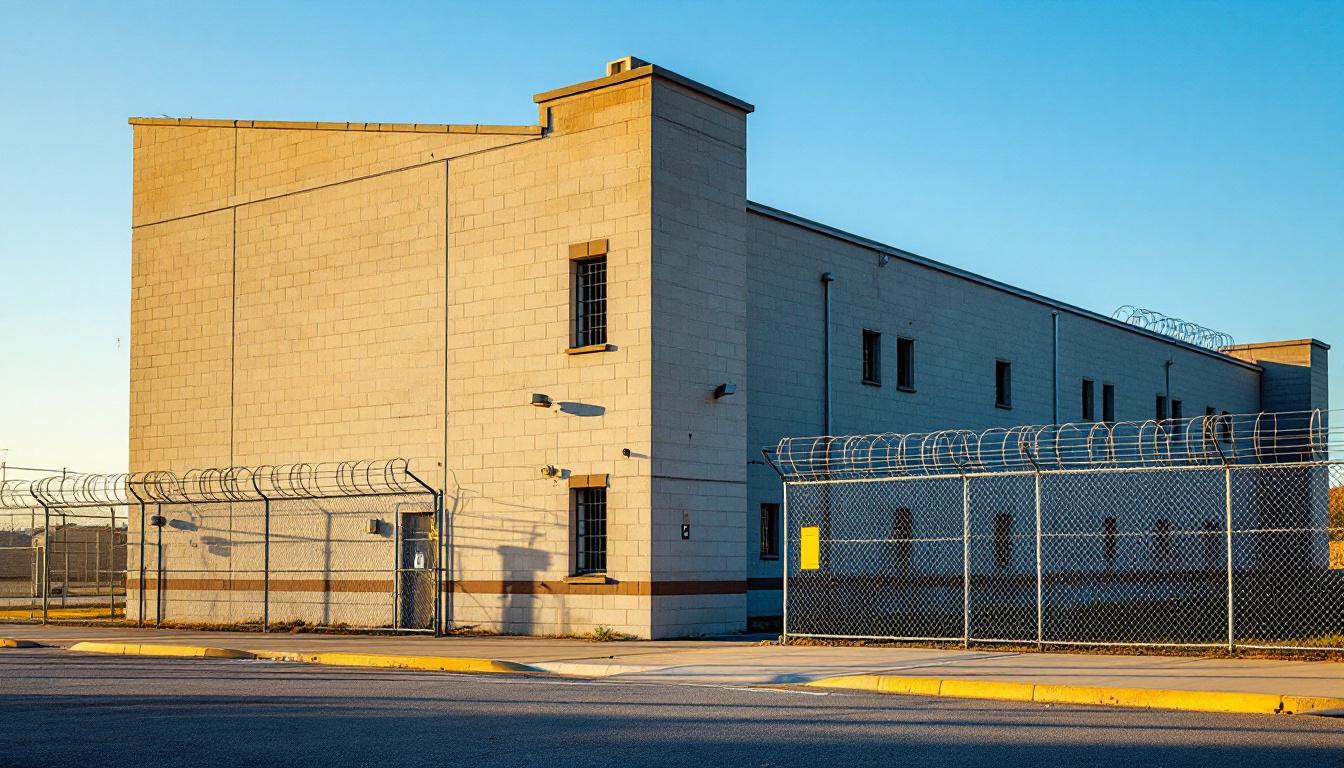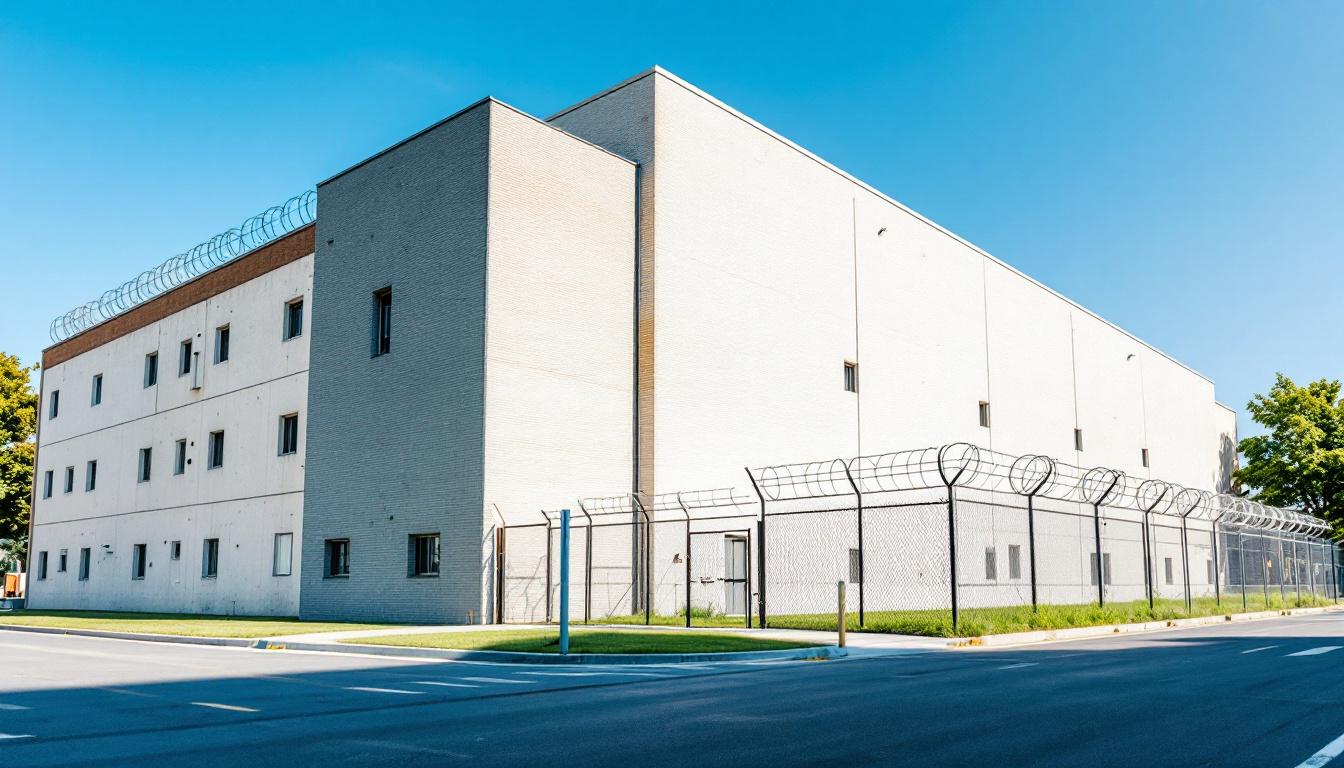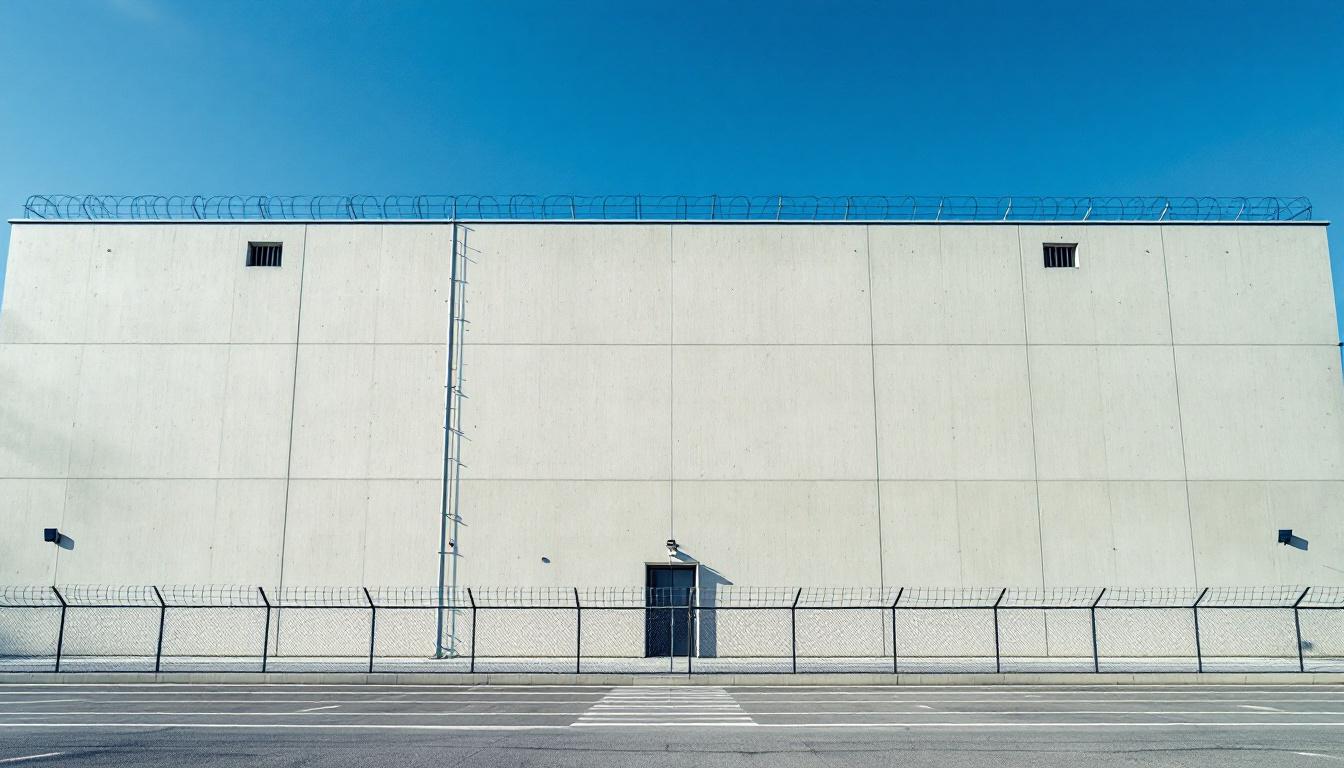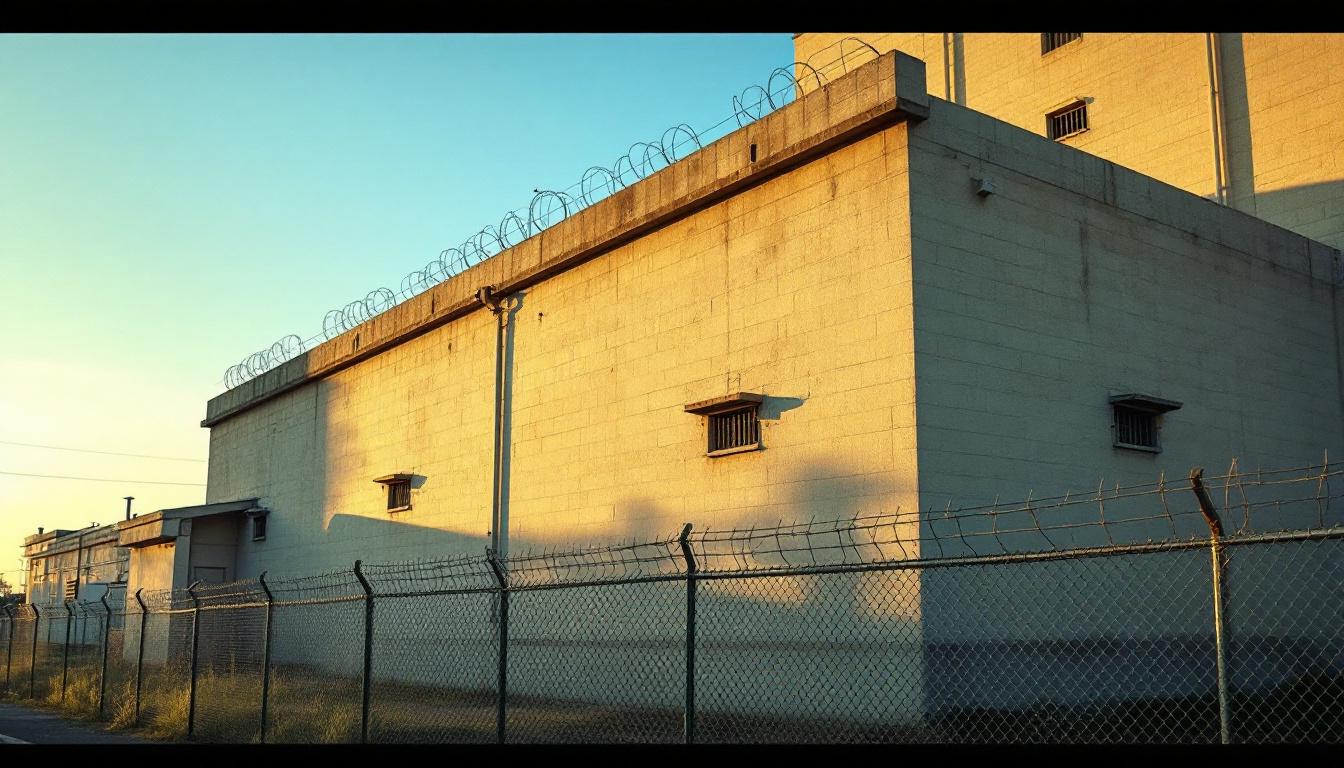
Quick Navigation
How to contact an inmate at Payne County Sheriff Office
This comprehensive guide will walk you through how to connect with an inmate at Payne County Sheriff Office. Follow the steps below to find an inmate and send letters and photos:
- Search for the inmate using our search tool below
- Create your account or log in to Penmate
- Write your message (up to 6,000 characters)
- Send instantly - inmates receive printed copies daily
Find an Inmate
Search for an inmate to start communicating today
Tip: You can search by first name, last name, or inmate ID number
To contact a person at Payne County Sheriff Office start by searching for the person on the official facility website. Perform a search by following these steps:
- Step 1: Enter their first name and last name into the search form and click "Search"
- Step 2: Locate their inmate record
- Step 3: Write down their Inmate ID and any housing information provided
Important! Be sure to enter the person's full name. Nicknames should not be used.
How to Send Messages to Inmates

You can use your phone or computer to send emails, letters, and photos to an inmate. Messages are sent electronically to inmate tablets or kiosks at the facility. If you would like to send a message, start by searching for an inmate at Payne County Sheriff Office.
Sending Photos and Postcards

A great way to send love and support to a loved one at Payne County Sheriff Office is to send photos and postcards. It only takes a few minutes to send photos from your phone and it makes a huge difference. You can also mail postcards with words of support and inspiration, or design your own postcard for special moments like birthdays and holidays.
Important! Be sure not to send any explicit photos or they may not be approved by the facility. You can also use a photo printing app like Penmate to make sure your photos are printed at the correct size (4x6 or 3x5) and are mailed according to the rules and regulations of Payne County Sheriff Office.
Frequently asked questions about Payne County Sheriff Office
-
How long does it take to deliver a message?
If you're sending an email message your letter is usually delivered within 24-48 hours. For messages sent via mail you should expect delivery within 3-7 days. All messages will need be approved by Payne County Sheriff Office.
-
How much does it cost to send a message to Payne County Sheriff Office?
You can send a message free using your phone or mail a message via USPS for the price of a $0.60 stamp and envelope. You can also purchase credits or e-stamps from services starting at $1.99.
-
What services can I use to contact an inmate at Payne County Sheriff Office?
Penmate
You can use Penmate to send letters and photos to an inmate from your phone. It's an easy way to stay in touch during your loved one's incarceration. Use the inmate locator to find an inmate's location and contact information, then you can send messages within a few minutes.
Securus messaging
Securus may be another option for communicating with an inmate at Payne County Sheriff Office. You can create a friends and family account and purchase credits to send messages. All messages will be reviewed and must be approved by the facility.
JPay
Some county jails and state prisons may support sending messages with JPay. You must register an account with the system, find your loved one, and purchase stamps to send messages. For some locations you can also attach photos.
Smart Jail Mail
You may also check if Smart Jail Mail is available at Payne County Sheriff Office. Smart Jail Mail is operated by Smart Communications and has contracted with some state and county jails. After purchasing credits, your messages and photos are sent to the facility, printed out, and then handed out to your loved one.
-
What is the mailing address of Payne County Sheriff Office?
Mailing address:
Payne County Sheriff Office
606 S Husband St
Stillwater, OK 74074
Phone: (405) 372-4522Business hours:
- Monday: 8:00 AM – 5:00 PM
- Tuesday: 8:00 AM – 5:00 PM
- Wednesday: 8:00 AM – 5:00 PM
- Thursday: 8:00 AM – 5:00 PM
- Friday: 8:00 AM – 5:00 PM
- Saturday: Closed
- Sunday: Closed
-
What are the visiting hours at Payne County Sheriff Office?
Visiting hours at Payne County Sheriff Office vary by housing unit and security level. Generally, visits are scheduled on weekends and holidays, with some facilities offering weekday visits. Contact the facility directly at (405) 372-4522 or check their website for the current visiting schedule. Visits typically last 30-60 minutes and must be scheduled in advance.
-
What items are prohibited when sending mail to Payne County Sheriff Office?
Prohibited items typically include: cash, personal checks, stamps, stickers, glitter, glue, tape, staples, paperclips, polaroid photos, musical or blank greeting cards, hardcover books, magazines with staples, and any items containing metal or electronics. Only send letters on plain white paper with blue or black ink. Photos must be printed on regular photo paper (no Polaroids). Always check with Payne County Sheriff Office for their specific mail policies.
-
How do I send money to an inmate at Payne County Sheriff Office?
You can send money to an inmate at Payne County Sheriff Office through several methods: 1) Online using JPay, Access Corrections, or the facility's approved vendor, 2) Money orders mailed directly to the facility with the inmate's name and ID number, 3) Kiosks located in the facility lobby, or 4) Over the phone using a credit or debit card. Fees vary by method, typically ranging from $2.95 to $11.95 per transaction.
-
Can I schedule a video visit with an inmate at Payne County Sheriff Office?
Many facilities now offer video visitation as an alternative to in-person visits. At Payne County Sheriff Office, video visits may be available through services like Penmate, Securus Video Connect, GTL, or ICSolutions. Video visits typically cost $10-20 for 20-30 minutes and must be scheduled in advance. You'll need a computer or smartphone with a camera and reliable internet connection. Contact the facility for their specific video visitation policies and approved vendors.
-
What identification do I need to visit an inmate at Payne County Sheriff Office?
All visitors must present valid government-issued photo identification such as a driver's license, state ID, passport, or military ID. Minors must be accompanied by a parent or legal guardian who can provide the minor's birth certificate. Some facilities require visitors to be on the inmate's approved visitation list, which may require a background check. Contact Payne County Sheriff Office for specific ID requirements and visitor approval procedures.
-
How can I find out an inmate's release date?
To find an inmate's release date at Payne County Sheriff Office, you can: 1) Use the online inmate search tool if available, 2) Call the facility's records department, 3) Contact the inmate's case manager or counselor, or 4) Have the inmate provide this information during a call or visit. For privacy reasons, some facilities only release this information to immediate family members.
Facility Overview
Contact Information
Payne County Sheriff Office606 S Husband St
Stillwater, OK 74074
Phone: (405) 372-4522
Official Website

About Payne County Sheriff Office
Community safety and support intersect at Payne County Jail in Stillwater, Oklahoma, where collaborative efforts between local agencies and community organizations work to address both immediate security needs and longer-term rehabilitation goals. This OK correctional facility operates within the broader framework of Oklahoma's county jail system, serving Payne County residents while maintaining connections to regional support networks that may include mental health services, substance abuse counseling, and educational programming typically found in similar facilities across the south region.
The facility's approach generally emphasizes coordination with community resources to provide inmates services that address underlying issues contributing to incarceration. Programs may include basic educational opportunities, substance abuse support groups, and mental health counseling, often delivered through partnerships with local service providers. Staff typically work to maintain communication with families and community support systems, recognizing that successful reintegration often depends on these connections remaining intact during an individual's time in custody.
Located in Stillwater, the county jail serves as part of the local criminal justice continuum, working alongside courts, probation services, and community-based organizations to support both public safety and individual rehabilitation efforts. The facility may offer various support services including medical care, library access, and visitation programs designed to maintain family connections. Through this collaborative approach, Payne County Jail typically aims to balance security requirements with programming that addresses the diverse needs of individuals in its care, contributing to broader community safety and wellness goals throughout the region.
Programs & Services
Personal transformation through structured learning opportunities forms the cornerstone of rehabilitative services at Payne County Jail, where inmates may access a comprehensive array of development-focused initiatives designed to address both immediate needs and long-term reintegration goals. The facility typically emphasizes skill-building and self-improvement through evidence-based approaches that recognize the interconnected nature of education, vocational preparation, and personal growth. This holistic philosophy often guides service delivery, ensuring that participants can engage with multiple pathways toward positive change during their incarceration period.
Educational services frequently encompass foundational academic instruction alongside specialized curricula such as financial literacy training, which may provide inmates with essential money management skills for successful community reentry. Additionally, vocational training opportunities often include hands-on instruction in trades like carpentry, allowing participants to develop marketable skills while gaining practical experience in construction techniques and tool usage. These educational and vocational services typically operate under the principle that meaningful skill acquisition can significantly enhance an individual's prospects for stable employment and reduced recidivism upon release.
Therapeutic interventions through mental health counseling services may address underlying behavioral patterns and emotional challenges that contribute to criminal behavior, while faith-based services often provide spiritual guidance and community support for those seeking such resources. Additionally, practical skill development through services like printing instruction can offer inmates technical competencies that translate directly to employment opportunities in various industries. The integration of these support and therapeutic services typically creates a multifaceted environment where personal development occurs through diverse channels, each contributing to the broader goal of successful rehabilitation and community reintegration.
Daily Life & Visitation

The concrete walls and fluorescent lighting of the housing units create a controlled environment where inmates at Payne County Jail must navigate their daily existence within carefully structured boundaries. Today's routine typically begins early with headcounts and meal service, consistently followed by periods designated for personal hygiene, facility maintenance duties, and structured activities. The rhythm of institutional life generally revolves around scheduled mealtimes, security checks, and designated periods for recreation or programming, providing inmates with a predictable framework that helps maintain order throughout the facility.
Living accommodations typically consist of shared cells or dormitory-style housing units, where inmates adapt to limited personal space and the constant presence of others. The sleeping areas generally include basic furnishings such as bunks, small storage areas for approved personal items, and shared bathroom facilities. Additionally, inmates may access commissary services to purchase approved items that provide some comfort and connection to life outside the facility walls, while personal property remains strictly regulated according to security protocols.
While daily life centers around institutional schedules, inmates often find structure through available work assignments within the facility, which may include kitchen duties, laundry services, or general maintenance tasks. Programming opportunities typically provide educational or recreational activities that help inmates maintain mental and physical well-being during their incarceration. Family connections remain vital through scheduled visitation periods and telephone privileges, allowing inmates to maintain important relationships and receive emotional support from loved ones, though these communications generally operate under specific security guidelines and time restrictions.
Ready to Connect?
Start communicating with your loved one today
Search for an Inmate
